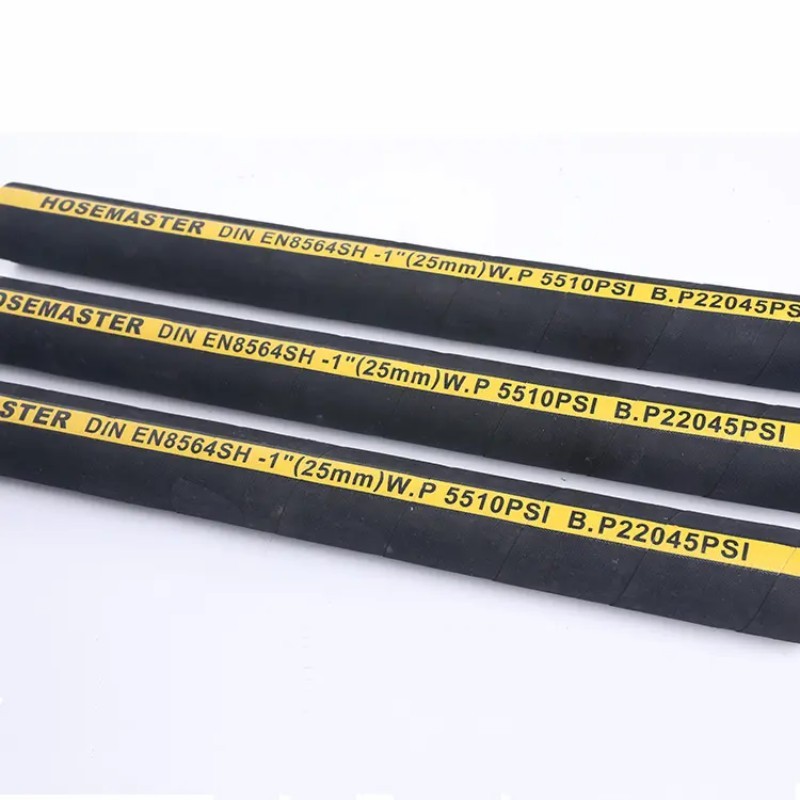335345435
Jul . 28, 2024 09:09 Back to list
Effective Hot Water Pressure Washer Hose for Superior Cleaning Performance and Durability
The Essential Guide to Hot Water Pressure Washer Hoses
When it comes to heavy-duty cleaning tasks, especially in commercial settings or for deep cleaning at home, hot water pressure washers are among the most effective tools available. They not only offer the power of high-pressure water but also utilize heated water to tackle tough grime, grease, and stains. However, the effectiveness of these machines relies significantly on the quality and suitability of the hoses used. This article delves into the importance of hot water pressure washer hoses, their features, and how to choose the right one for your cleaning needs.
Why Choose Hot Water Pressure Washers?
Hot water pressure washers are designed to clean surfaces more effectively than their cold water counterparts. The heat helps to dissolve and loosen stubborn dirt and grease, making it easier for the pressure washer to do its job. This is particularly useful in industries such as automotive, food service, and construction, where dirt and grime can be embedded in surfaces.
However, to get the most out of a hot water pressure washer, using the correct hose is crucial. The hose acts as the lifeline, delivering hot water under high pressure, and must withstand extreme temperatures and pressures without failing.
Features of Hot Water Pressure Washer Hoses
1. Material Hot water pressure washer hoses are generally made from rubber or thermoplastic materials. Rubber hoses are popular because they offer flexibility and durability, even in high-temperature environments. However, thermoplastic hoses are often lighter and more resistant to kinks, making them easier to maneuver.
2. Temperature and Pressure Ratings It’s vital to select a hose that can handle the specific temperature and pressure requirements of your pressure washer. Most hot water pressure washer hoses can withstand temperatures up to 250°F (121°C) and pressures ranging from 3,000 to 4,000 PSI. Always check your pressure washer's manual for the recommended specifications.
hot water pressure washer hose

3. Length The length of the hose can affect your cleaning efficiency. Longer hoses can reach more areas without moving the pressure washer, but they may also reduce pressure slightly. A common length for industrial use is between 50 to 100 feet, while residential users may find 25 to 50 feet adequate.
4. Connection Fittings Ensure the hose is compatible with your pressure washer. The fittings on the ends should securely connect to the machine and any additional nozzles or attachments you plan to use. Quick-connect fittings are a popular option for ease of use.
5. Reinforcement To prevent kinking and abrasion, look for hoses with reinforcement layers. Braided or multi-layered hoses can offer added strength and longevity, making them suitable for rugged environments.
Choosing the Right Hose
When selecting a hose for your hot water pressure washer, consider your primary cleaning tasks. If you're dealing with heavy-duty cleaning in demanding environments, a robust rubber hose with high temperature and pressure ratings is ideal. For lighter tasks, a flexible thermoplastic hose may suffice.
Don’t forget to maintain your hose properly. After each use, check for signs of wear, such as cracks or bulges, which could lead to leaks or bursts. Store the hose in a cool, dry place, avoiding areas with extreme temperatures to prolong its lifespan.
In conclusion, the hose on your hot water pressure washer is just as crucial as the machine itself. By selecting the right hose based on material, temperature and pressure ratings, length, and reinforcement, you can ensure efficient cleaning and enhance the lifespan of your pressure washer. Investing time in choosing the perfect hose will pay dividends in performance and durability, making your cleaning tasks easier and more effective.
-
SAE 100 R17 Black Smooth Cover Hydraulic Hose
NewsMar.07,2025
-
SAE 100 R17 Black Smooth Cover Hydraulic Hose
NewsMar.07,2025
-
SAE 100 R17 Black Smooth Cover Hydraulic Hose
NewsMar.07,2025
-
SAE 100 R17 Black Smooth Cover Hydraulic Hose
NewsMar.07,2025
-
SAE 100 R17 Black Smooth Cover Hydraulic Hose
NewsMar.07,2025
-
steel wire braided hydraulic hose
NewsMar.07,2025



